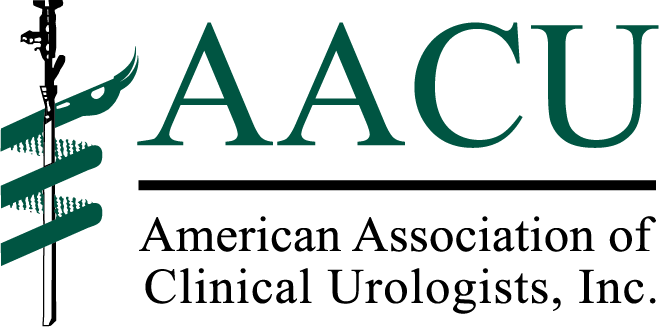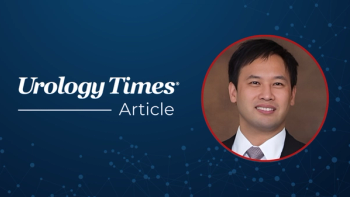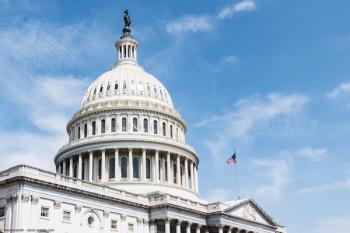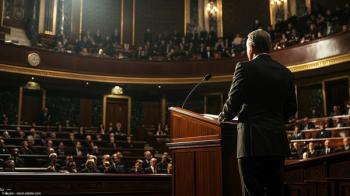
- Vol. 46 No. 10
- Volume 46
- Issue 10
AUA, AACU back Good Samaritan legislation

Organizations representing urologists are urging Congress to enact protections from medical liability lawsuits for medical professionals who volunteer during emergencies, such as natural disasters or other large-scale crises.
Organizations representing urologists are urging Congress to enact protections from medical liability lawsuits for medical professionals who volunteer during emergencies, such as natural disasters or other large-scale crises.
The AUA and the AACU are backing the Good Samaritan Health Professionals Act, which has been introduced by Rep. Marsha Blackburn (R-TN) and Sen. Bill Cassidy, MD (R-LA).
“When a national crisis or catastrophe such as a hurricane, wildfire, flood, or even a terrorist attack occurs, a prompt and adequate medical response can be the difference between life and death, especially for those victims in critical condition,” a statement by the AACU said. “But while physicians and other health care professionals are often willing and eager to assist disaster victims, many have been turned away or otherwise deterred from volunteering due to inconsistent and ambiguous state and federal laws.”
What the bill would do
The proposed legislation seeks to address this situation by eliminating liability for health care professionals who serve as volunteers in response to a federally declared disaster. It would prevent a health care professional from being held liable under federal or state law for harm caused by any act or omission if:
- the professional is serving as a volunteer in response to a disaster
- the act or omission occurs during the period of the disaster, in the professional’s capacity as a volunteer, and in a good faith belief that the individual being treated is in need of health care services.
The bill limits its protections to individuals treating victims in an event that has officially been declared a federal disaster and will not apply in cases of willful, criminal, or reckless misconduct, gross negligence, conscious flagrant indifference, or intoxication by the professional while volunteering.
Also see:
“With bipartisan support, this bill will help ensure that victims of national disasters, such as the recent hurricanes in Puerto Rico, Texas, and Florida, will have access to the quality onsite care they need by enhancing clarity regarding the patchwork of state laws encouraging medical volunteerism and reducing risk and uncertainty for health care professionals,” the AACU said, urging members of Congress to cosponsor the legislation-HR. 1876 in the House and S. 781 in the Senate.
Meanwhile, the AUA said it is running a grassroots campaign asking its members to urge members of the House and Senate to support the legislation and to include it in the Pandemic and All-Hazards Preparedness Reauthorization Act (PAHPA), which would reauthorize a program first enacted in 2006.
“We are asking that you please contact your Senators and ask them to cosponsor S. 781… and to support including this bill language in the PAHPA. We are also asking that you share this information with your colleagues and have them reach out to their Senators as well,” the AUA said in a Policy and Advocacy Brief.
Next:
In introducing the Good Samaritan Health Professionals Act, Dr. Cassidy stressed the importance of medical volunteers in times of disaster.
“Volunteers were crucial in helping families begin recovering after last year’s flood,” Dr. Cassidy said. “Following Hurricane Katrina, medical professionals from across the U.S. came to Louisiana to help. The Good Samaritan Health Professionals Act provides medical professionals with legal protections that protect volunteers aiding disaster victims.”
Read:
He pointed out that the Volunteer Protection Act of 1997 protects volunteers from nonprofit agencies and government entities from litigation and economic losses resulting from volunteerism, but does not apply to independent volunteers or those who cross state lines to volunteer.
PAHPA reauthorization
Reauthorization of the PAHPA, to which the AUA hopes to add the Good Samaritan bill’s language, was the subject of a House Energy and Commerce Committee hearing in June.
Authored by Rep. Susan Brooks (R-IN) and Rep. Anna Eshoo (D-CA), it will reauthorize preparedness and response programs such as the Hospital Preparedness Program, Temporary Reassignment of Federally Funded Personnel, the National Advisory Committee on Children and Disasters, and the Emergency System for Advanced Registration of Volunteer Health Professionals.
Among its provisions, the bill prioritizes preparing for and responding to cyber threats and provides resources for the development of medical countermeasures for pandemic influenza and emergency infectious diseases within Biomedical Advanced Research and Development Authority.
In its appeal to members to contact lawmakers on behalf of the Good Samaritan legislation, the AUA positioned it as part of the medical liability reform initiative, which has been ongoing in Congress for many years.
Articles in this issue
over 7 years ago
Novel method in the diagnostic arsenal for prostate cancerover 7 years ago
PSA isoform assay predicts high-grade PCaover 7 years ago
CIC-associated bacteriuria: When to treat-and not treatover 7 years ago
Delayed abscess Dx results in paralysisover 7 years ago
IMRT ownership appears to influence PCa treatmentover 7 years ago
Why your practice needs to track phone call qualityover 7 years ago
401(k) with a previous employer: What are your options?over 7 years ago
What factors reduce the time you spend with patients?Newsletter
Stay current with the latest urology news and practice-changing insights — sign up now for the essential updates every urologist needs.






